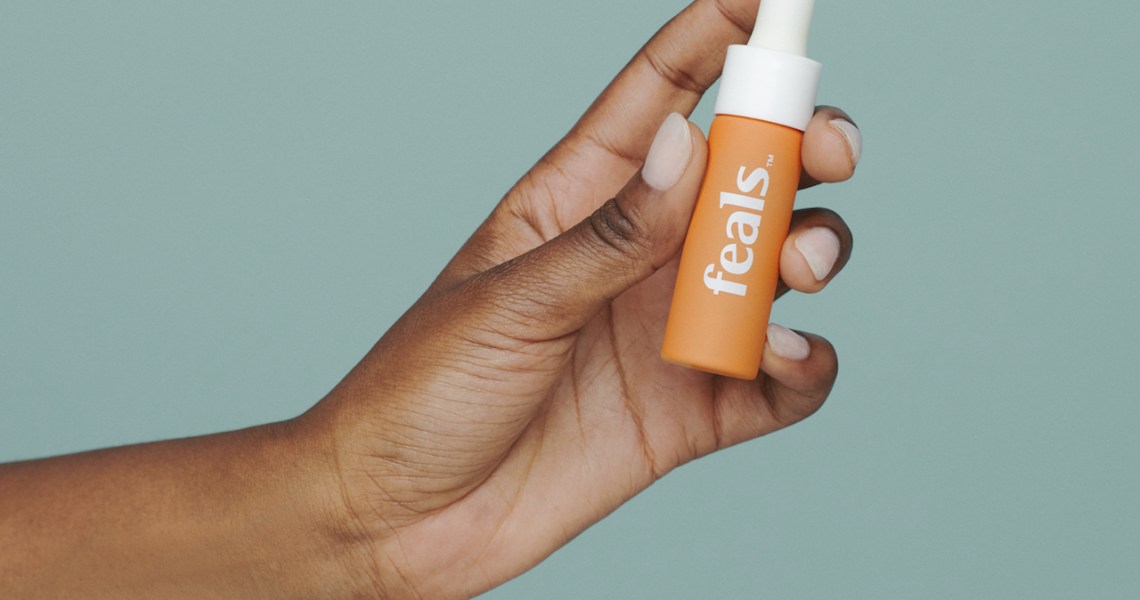Feals founders Drew Todd, Alex Iwanchuk and Eric Scheibling took an unusual approach to launching their ingestible CBD company.
Feals, which is DTC-only and launched in March, was seeped in data even before debuting its now-hero wellness tincture. In July 2018, Todd, Iwanchuk and Scheibling created a proof-of-concept brand called Vitalife, which sold CBD in all forms, including tinctures and gelcaps for all customers types — pets, too — to gauge “product-market fit.”
“We tested a variety of different SKUs, strengths and types of CBD to understand customer stickiness,” said Todd. “What we found is that consumers typically needed more CBD than they thought they did. When we saw our full-spectrum products had the most anecdotal support and interest, that led us to Feals.”
Through Vitalife, the company sold to 6,000-plus consumers nationally and made $1 million in total revenue, said Todd.
To bring Vitalfe’s data to Feals, Todd, Iwanchuk and Scheibling introduced customers to the Feals flight, a sampler kit of its tincture oil in three doses: 40 milligrams, 80 milligrams and 160 milligrams, that retails for $20. Once customers find their perfect dosage within the flight (the company said its highest tincture accounts for nearly 20% of sales), Feals directs shoppers to its membership model. This saves customers 30% off all products for their lifetime; a monthly supply of each dose sells for $74.95 for 600 milligrams, $134.95 for 1,200 milligrams and $244.95 for 2,400 milligrams, sans promotion. In eight months of operation, Feals has 15,000 total customers and the company has seen over 600% growth in total revenue.
“CBD has exploded in the headlines, but one of the biggest challenges in the cannabis industry is education. When there are so many options for consumers, it can be more confusing than necessary,” said Todd.
The use cases for CBD continues to be the focus of marketing messages for CBD brands like Lord Jones and Cannuka, as well as retailers like Miss Grass and Standard Dose. But for Feals, the issue is more challenged because of its online-only footprint — Facebook and Google have banned marijuana ads since it remains illegal on the federal level. Iwanchuk leads an education hotline for customers to call in for questions around dose control, but podcasts have been where the company has spent the bulk of its ad dollars.
Ad position: web_incontent_pos1
“We know we have a high-priced product and that consumers aren’t sure if CBD works. What does work is when we amplify our story and how we solve for efficacy,” said Todd.
Feals would not state its exact spend in podcasts, but advertising has taken shape through mid-roll placements on shows like “Pod Save America” and “Girls Gotta Eat” this past quarter. Podcasts have been a tool CBD brand Hath has also utilized for its marketing efforts due to more relaxed broadcast restrictions. While other brands have looked to out-of-home advertising or retailers for marketing support, the Feals team is squarely focused on attribution. The brand is offering promos during podcast ad placements by using vanity links that can be tied back to each show. Thus, podcasts will continue to be Feals main advertising lever for both brand awareness and conversion in 2020.
“Out-of-home is great if you have a lot of money to spend, but right now, we are taking a data-led approach to what we do with advertising and want to see how those efforts can pay off,” said Todd.




